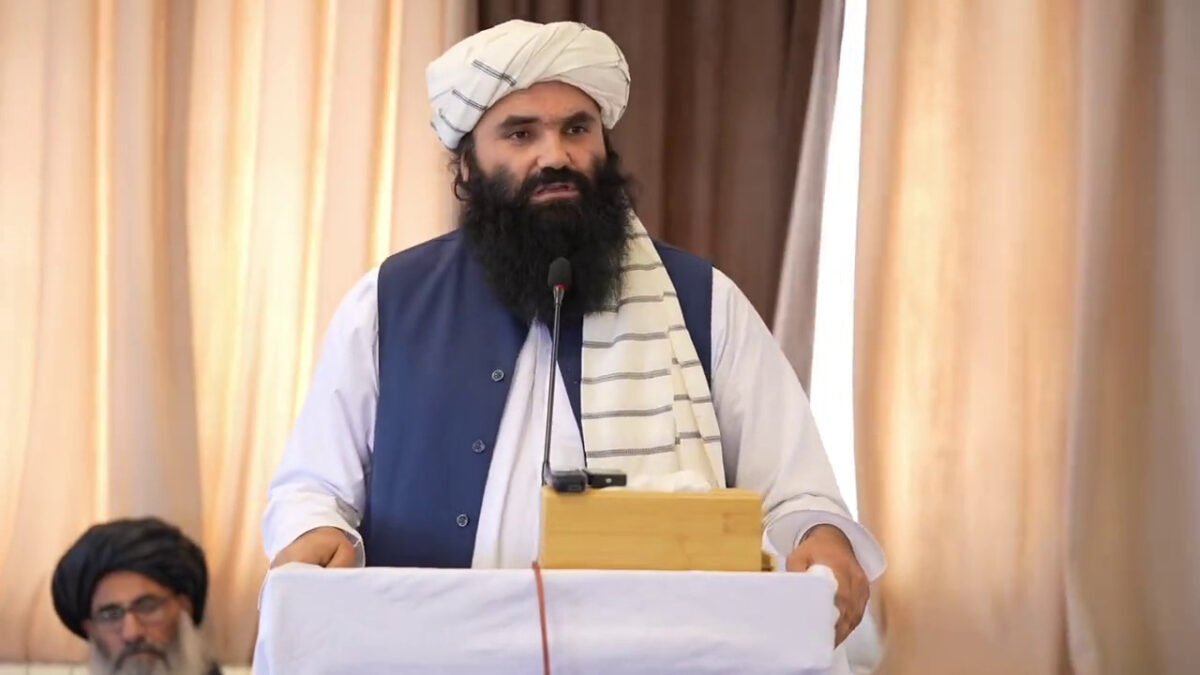In less than 40 days, the Taliban regime will mark its second anniversary, a regime that refuses to conform to the expectations of the international community and remains steadfast in enforcing strict restrictions within Afghanistan.
Sirajuddin Haqqani, Taliban’s acting minister for the Ministry of Interior Affairs, in a speech in Paktia province on Tuesday, asserted that “their government” lacks recognition because they reject the directives of the world.
He emphasized that they have not acquiesced to any demands from the international community.
“We are not recognized because we did not comply with their orders. We did not accept any of their requests until the very last moment,” stated Haqqani.
Over the past two years, representatives from various countries have expressed their willingness to engage with the Taliban on international platforms, but the Taliban has consistently refused such offers.
The international community’s key demands from the Taliban include combating terrorist groups, curbing drug trafficking, establishing an inclusive government, and safeguarding human rights, particularly women’s rights. However, a United Nations report from June reveals that the Taliban continues to provide safe haven to twenty terrorist groups, including Al-Qaeda. Furthermore, their definition of an inclusive government diverges from the expectations of the global community, as it fails to provide political representation to all groups.
Analysts contend that the Taliban will not be acknowledged until they demonstrate a commitment to combating terrorism and drug trafficking, ensuring human rights (particularly women’s rights), and establishing an inclusive government.
“Establishing a legitimate government that represents all Afghan citizens is a prerequisite for the recognition of the Taliban by the world. If the Taliban fails to act upon these demands, I believe they will not receive recognition,” said Seyyed Ishaq Atmar, a political affairs analyst.
During their rule of approximately two years, the Taliban has imposed stringent restrictions on women, including the denial of education and employment rights. Some argue that the Taliban’s disregard for women’s basic rights makes their recognition highly unlikely in the foreseeable future.
“Their actions and treatment towards human rights institutions and opposition politicians, whom they have not allowed to share power, indicate that the Taliban is unlikely to promptly accept the demands of the international community,” stated Barna Salehi, a political affairs analyst. “Consequently, the recognition of their government by the international community may be postponed
So far, the international community has refrained from deliberating the recognition of the Taliban. In a purported audio message attributed to Taliban leader Mullah Hebatullah Akhundzadeh on Eid al-Adha, he acknowledged that the world perceives the Taliban’s rise to power as a result of force and therefore does not recognize their government. He warned the Taliban to prepare for increased pressure from the international community.




